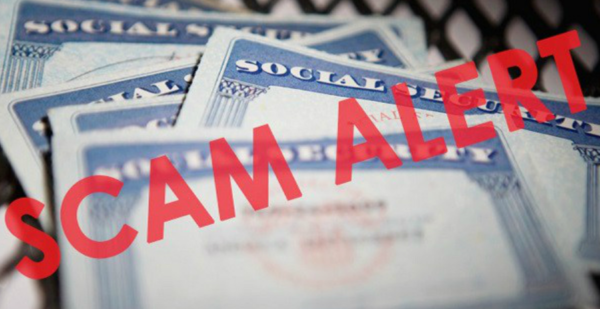
- Details
- By Native News Online Staff
WASHINGTON — The Social Security Administration is warning the public about scam telephone calls from individuals claiming to be Social Security staff and threatening unsuspecting people with fines and arrest if they don’t pay immediately with cash or a prepaid debit card.
Additionally, the scammers will also send a fake email with attached documents that appear to be from the Social Security Administration. The documents appear real because they use what appears to be official Social Security Administration letterhead.
The elderly are being targeted and are falling for the fake schemes and losing money. The Social Security Administration says it has received over 450,000 imposter-related complaints last year. The Federal Trade Commission reports that Social Security-related scams ended up with losses of almost $19 million between April 2018 and March 2019.
The following Public Service Announcement (PSA) video from Social Security Administration Commissioner Andrew Saul provides information about the problem and how to handle the situation:
Social Security employees do occasionally contact people—generally those who have ongoing business with the agency—by telephone for business purposes. However, Social Security employees will never threaten a person, or promise a Social Security benefit approval, or increase, in exchange for information or money. In those cases, the call is fraudulent and people should just hang up.
The Social Security Administration will not:
- Tell you that your Social Security number has been suspended.
- Contact you to demand an immediate payment.
- Ask you for credit or debit card numbers over the phone.
- Require a specific means of debt repayment, like a prepaid debit card, a retail gift card, or cash.
- Demand that you pay a Social Security debt without the ability to appeal the amount you owe.
- Promise a Social Security benefit approval, or increase, in exchange for information or money.
If there is a problem with a person’s Social Security number or record, in most cases Social Security will mail a letter. If a person needs to submit payments to Social Security, the agency will send a letter with instructions and payment options. People should never provide information, including giving your social security number, or payment over the phone or Internet unless they are certain of who is receiving it.
More Stories Like This
Native News Weekly (August 25, 2024): D.C. BriefsUS Presidents in Their Own Words Concerning American Indians
Final Call for Donations as CRYP’s 2025 Toy Drive Nears the Finish Line
Star-Studded Livestream to Boost Native News Online’s Year-End Campaign
Monday Morning (December 8, 2025): Articles You May Have Missed This Past Weekend
Help us defend tribal sovereignty.
At Native News Online, our mission is rooted in telling the stories that strengthen sovereignty and uplift Indigenous voices — not just at year’s end, but every single day.
Because of your generosity last year, we were able to keep our reporters on the ground in tribal communities, at national gatherings and in the halls of Congress — covering the issues that matter most to Indian Country: sovereignty, culture, education, health and economic opportunity.
That support sustained us through a tough year in 2025. Now, as we look to the year ahead, we need your help right now to ensure warrior journalism remains strong — reporting that defends tribal sovereignty, amplifies Native truth, and holds power accountable.
 The stakes couldn't be higher. Your support keeps Native voices heard, Native stories told and Native sovereignty defended.
The stakes couldn't be higher. Your support keeps Native voices heard, Native stories told and Native sovereignty defended.
Stand with Warrior Journalism today.
Levi Rickert (Potawatomi), Editor & Publisher

